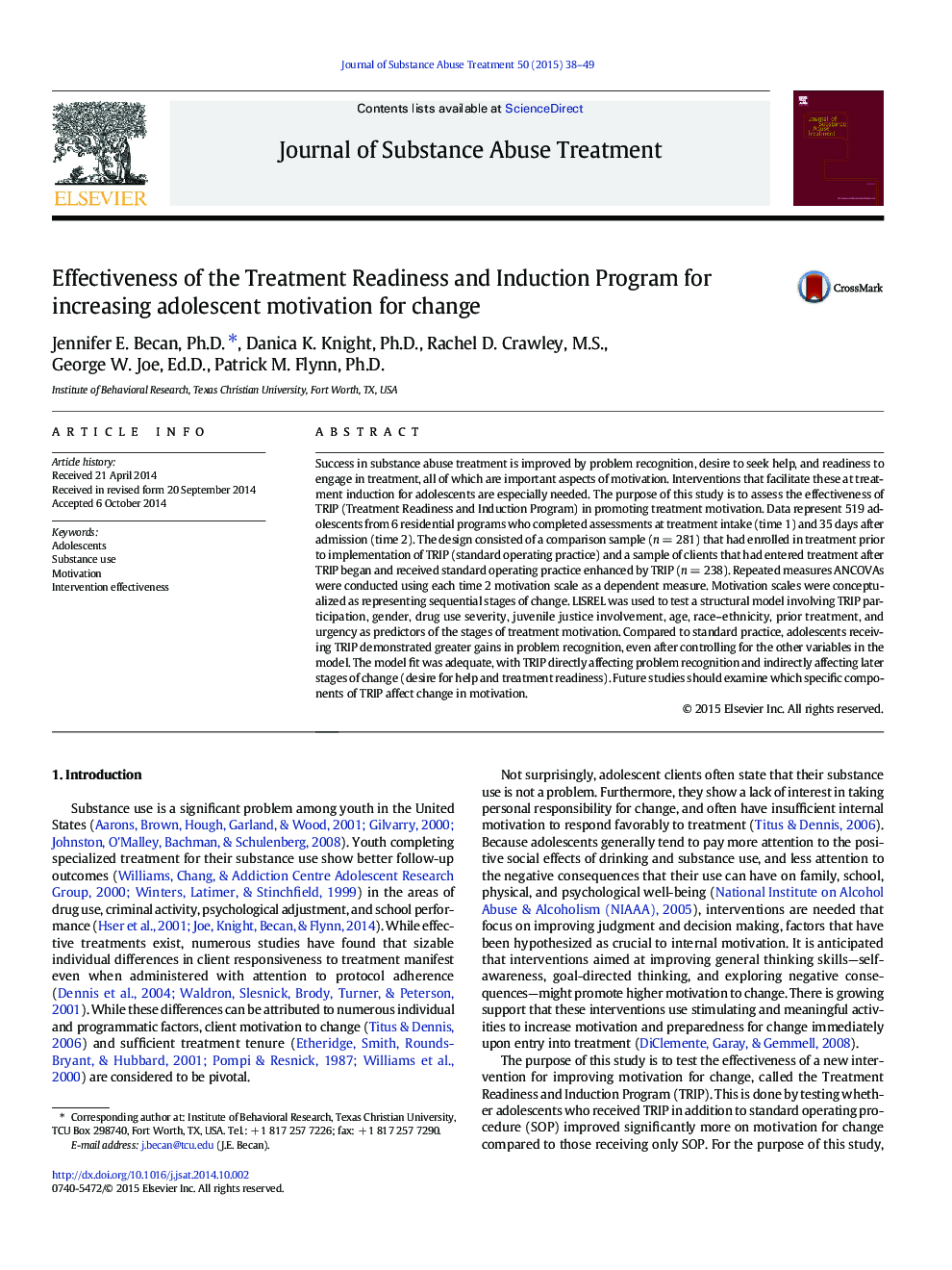| Article ID | Journal | Published Year | Pages | File Type |
|---|---|---|---|---|
| 329663 | Journal of Substance Abuse Treatment | 2015 | 12 Pages |
•Compared to standard operating practice, clients that receive the Treatment Readiness and Induction Program (TRIP) demonstrated greater gains in problem recognition.•TRIP had added benefits for improving desire for help for those with a low propensity to act rashly under extreme positive emotions.•Current results support the cyclical, bi-directional nature of the stages of change model, suggesting that strategies aimed at increasing problem recognition may have clinical utility through the recovery process.
Success in substance abuse treatment is improved by problem recognition, desire to seek help, and readiness to engage in treatment, all of which are important aspects of motivation. Interventions that facilitate these at treatment induction for adolescents are especially needed. The purpose of this study is to assess the effectiveness of TRIP (Treatment Readiness and Induction Program) in promoting treatment motivation. Data represent 519 adolescents from 6 residential programs who completed assessments at treatment intake (time 1) and 35 days after admission (time 2). The design consisted of a comparison sample (n = 281) that had enrolled in treatment prior to implementation of TRIP (standard operating practice) and a sample of clients that had entered treatment after TRIP began and received standard operating practice enhanced by TRIP (n = 238). Repeated measures ANCOVAs were conducted using each time 2 motivation scale as a dependent measure. Motivation scales were conceptualized as representing sequential stages of change. LISREL was used to test a structural model involving TRIP participation, gender, drug use severity, juvenile justice involvement, age, race–ethnicity, prior treatment, and urgency as predictors of the stages of treatment motivation. Compared to standard practice, adolescents receiving TRIP demonstrated greater gains in problem recognition, even after controlling for the other variables in the model. The model fit was adequate, with TRIP directly affecting problem recognition and indirectly affecting later stages of change (desire for help and treatment readiness). Future studies should examine which specific components of TRIP affect change in motivation.
